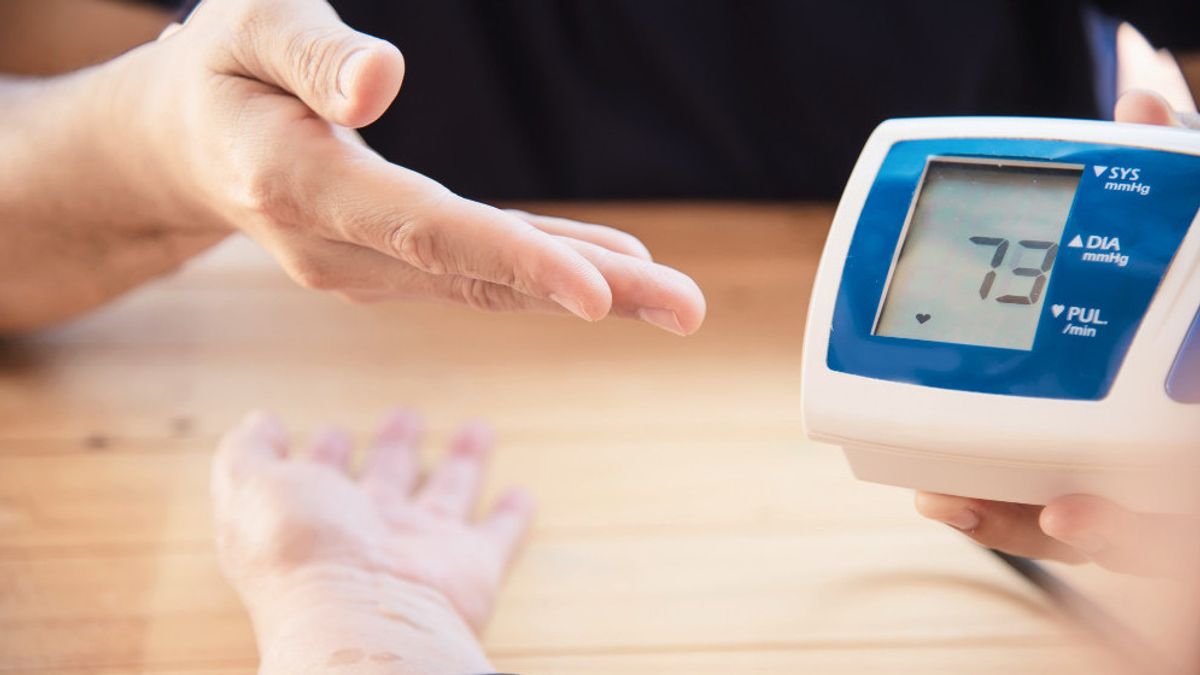YOGYAKARTA Factors that affect blood pressure vary widely. These include daily habits, genetic factors, and heart conditions. Several cases of low blood pressure, influenced by pregnancy, underlying diseases, and reactions of unhealthy lifestyles.
Blood pressure refers to the blood force that pushes the arterial walls as the heart pumps. In a person with low blood pressure, blood flows through amethysts and arteries with too small power. Doctors use reference to systolic blood pressure and diastolic to diagnose blood pressure levels. Sistolilic blood pressure, is the blood pressure of the arteries against the walls of the arteries when the heart beats. While diastolic pressure refers to blood strength when the heart rests between the beats.
Blood pressure, said to be lower than 120 mm Hg for the systolic and 80 mm Hg for the diastolic. According to doctors, the blood pressure is lower than 120/80 mm Hg. In contrast to the official statement of The National Heart, Lung, and Blood reported by Medical News Today, Wednesday, October 5. That low blood pressure is below 90/60 mm Hg.
When blood pressure is low, the symptoms experienced include the body's weakness, dizziness, fatigue, vomiting, dehydration, difficulty concentrating, blurred vision, moist and cold skin, fast and shallow breathing. Even someone who experiences it can faint if the symptoms are not immediately realized.
Many factors cause low blood pressure. Including physical activity, diet, and age. Genetic factors also affect a person's blood pressure. In the short term or related to habit and lifestyle, low blood pressure can be triggered by food, straining, long inactive, dehydration, and pregnancy.
If the blood is low during pregnancy, in some cases it will heal by itself. It's different if it is triggered by other causes, such as food. Because it requires a treatment strategy including changing the diet. If low blood pressure is triggered by a more serious factor, it will last longer and require the most appropriate treatment recommendation from a doctor.
The low blood pressure can also be caused by other things. Such as vitamin B12 deficiency and folic acid, nerve-induced hypotension, endocrine problems, heart problems, septic shock, analytical shock, and blood loss due to injury. Blood pressure is sometimes also influenced by the consumption of certain drugs, such as hypertension drugs, heart drugs, antidepressants, erectile dysfunction drugs, parkinson disease drugs, and therapeutic drugs.
Low blood pressure can be overcome in several ways. Among other things, drinking more water, eating healthier foods, drinking tomato juice, wearing socks that extend to your thighs or waist, and moving your feet before getting out of bed.
But when a low blood pressure caused by a child's shock, one needs to see a doctor. Symptoms of a child's shock, including rash skin, diarrhea, difficulty breathing, fainting, dizziness, swelling of the lips, tongue, and throat. For those who experience symptoms of septic shock, with symptoms of infection, diarrhea, vomiting, mucus, sweat skin, difficulty concentrating, and confusion, you must also see a doctor.
A healthy diet to avoid low blood pressure relapse, you need to eat less but more portions. Because, heavy meals with large portions are associated with lower blood pressure.
In addition, avoid sudden posture changes. For example, from sitting suddenly standing which causes dizziness and firehead.
The English, Chinese, Japanese, Arabic, and French versions are automatically generated by the AI. So there may still be inaccuracies in translating, please always see Indonesian as our main language. (system supported by DigitalSiber.id)













